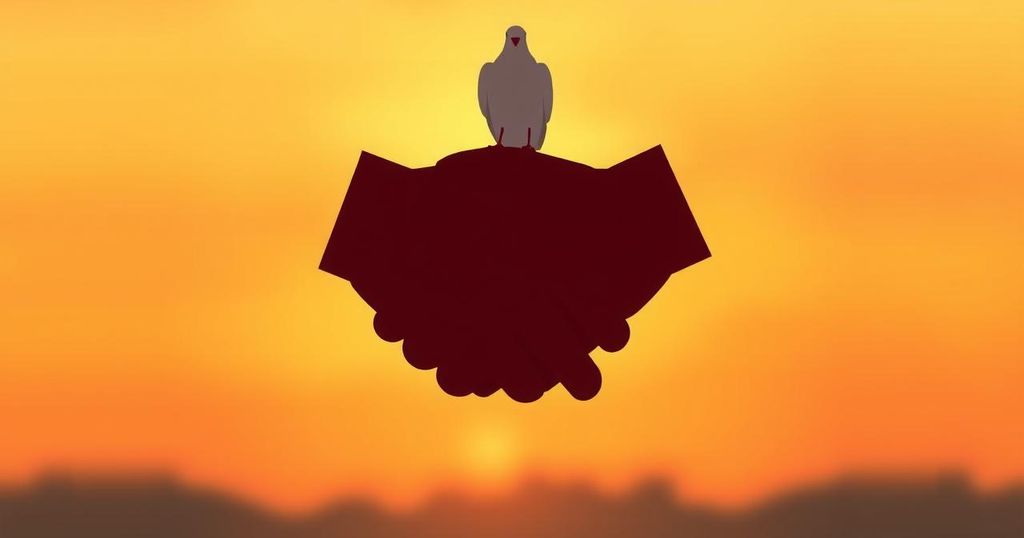U.S. envoy Steve Witkoff visited Moscow for ceasefire discussions on a proposed 30-day truce that Ukraine accepted. Russian officials fear that this ceasefire may primarily benefit Ukraine by allowing its military to regroup. Amidst ongoing territorial claims and renewed military operations, the U.S. continues to apply pressure for a diplomatic resolution to the three-year conflict.
On Thursday, the U.S. special envoy, Steve Witkoff, arrived in Moscow to discuss a proposed 30-day ceasefire, which Ukraine has accepted. A senior Russian official remarked that such a ceasefire would predominantly benefit Ukraine by providing a temporary reprieve for its military. This development follows ongoing military tensions, with Russia claiming recent territorial gains.
The Russian Defense Ministry reported that its forces have recaptured the town of Sudzha, a strategic location in the Kursk region. However, this assertion has not been independently verified, and Ukrainian officials have not commented on the claim. This comes amidst increasing urgency from President Trump for diplomatic resolutions to the conflict.
In light of the U.S. resuming military aid to Ukraine, President Trump emphasized that the onus is on Russia to agree to the ceasefire terms. He signalled possible sanctions if Russia failed to cooperate. Despite these developments, Kremlin spokesman Dmitry Peskov refrained from discussing the ceasefire’s details publicly at this time.
While U.S. officials are optimistic about reducing attacks on Ukraine soon, some Russian officials argue that a ceasefire would only allow Ukrainian forces to regroup. Yuri Ushakov, Putin’s foreign policy adviser, expressed skepticism, asserting that the proposed ceasefire would not yield substantial benefits for Russia.
Ukrainian President Volodymyr Zelenskyy criticized Russia’s slow response to the ceasefire proposal, accusing it of delaying peace negotiations. He conveyed Ukraine’s commitment to swiftly pursue peace, hoping that U.S. pressure would influence Russia’s military actions.
As the U.S. retains substantial funding for military support to Ukraine, the potential for a ceasefire presents a dilemma for Russia, which currently holds a strategic advantage in the conflict. Ukrainian troops embattled in Russia, particularly in Kursk, have faced intensified military operations. Putin has indicated aspirations for broader territorial defense as Russian forces aim to secure the region.
Reports suggest significant airstrikes have severely damaged Sudzha, complicating the battlefield dynamics. Concurrently, Ukraine’s military experienced command restructuring as Maj. Gen. Dmytro Krasylnykov was dismissed, highlighting internal challenges amid external pressures in the ongoing conflict.
The U.S. envoy’s visit to Moscow underscores a diplomatic effort to negotiate a ceasefire that Ukraine has tentatively accepted. However, significant skepticism from Russian officials suggests potential hurdles in achieving a constructive resolution. As military actions intensify, the implications of such a ceasefire remain complex, posing strategic dilemmas for both sides involved. The development highlights the ongoing tension and the need for a comprehensive approach to peace.
Original Source: www.pbs.org




